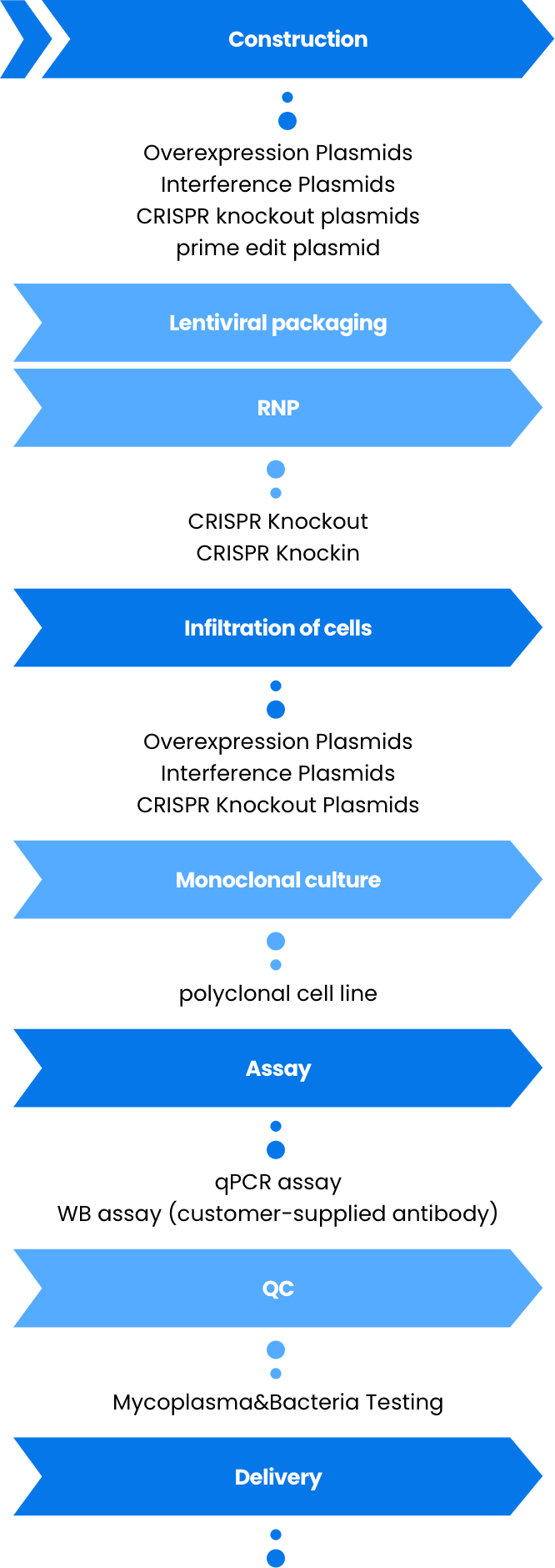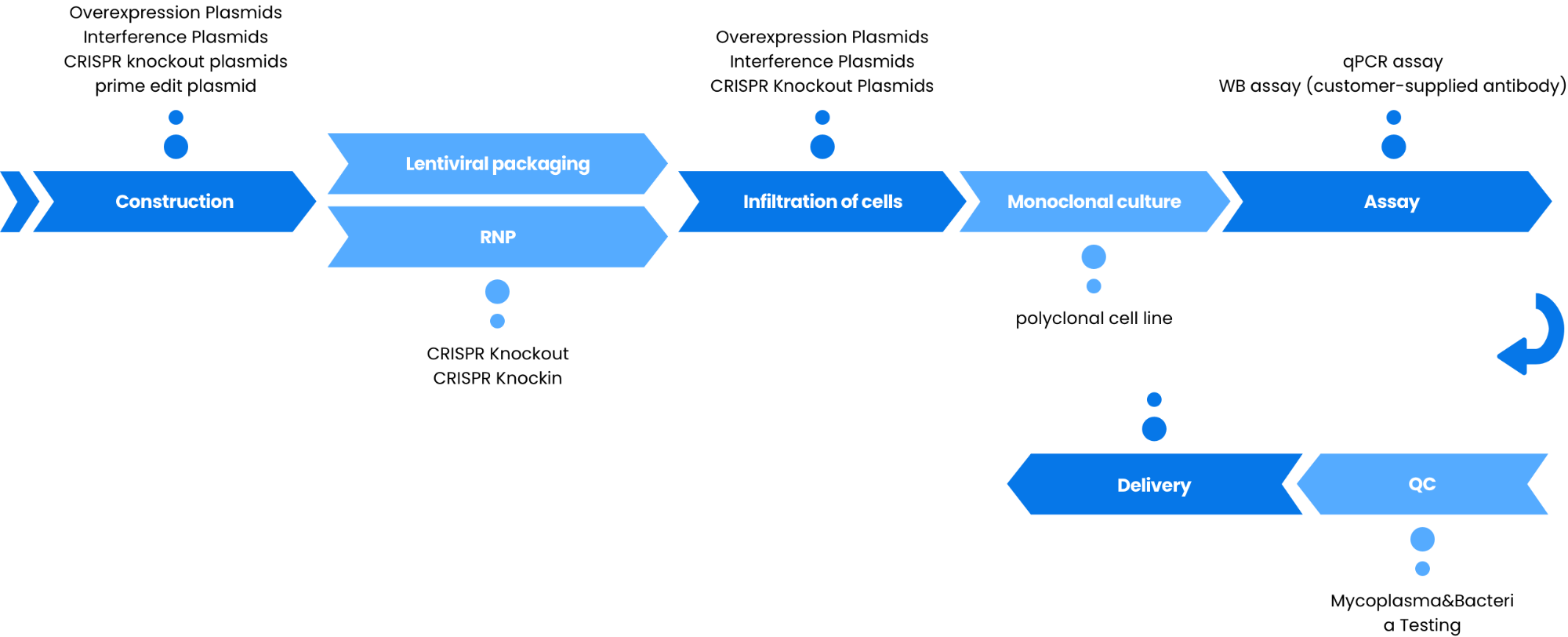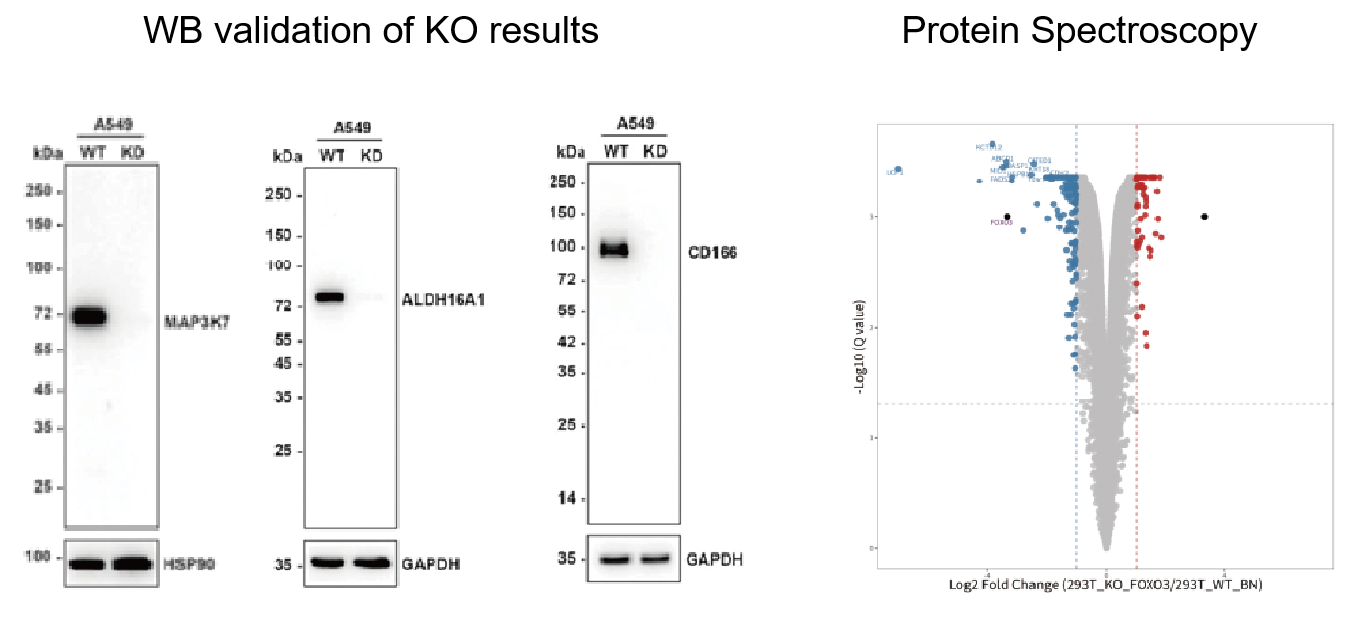Cell line construction is a crucial biotechnology used to create stable cell lines that express or knock out specific genes. It is widely applied in gene function research, disease mechanism studies, drug screening, and biopharmaceutical production.
Once the exogenous gene is introduced into the cell, there are two modes of expression: transient expression and stable expression. In transient expression, the exogenous DNA does not integrate into the host cell's chromosomal DNA and can only be expressed transiently and efficiently within the cell for a short duration. In stable expression, the exogenous DNA integrates into the cell's chromosomal DNA and is stably passed down to the progeny cells during cell division, forming a stable transformed cell line.
Tsingke offers one-stop cell line construction services through Tsingke Gene Factory, including gene sequencing, cell culture, and stable cell line delivery.efficiently providing more than 150 stable cell lines for expressing or knocking out specific genes, including most model cells and tumor cells. Additionally, monoclonal cell line WB experiments or proteomics validation can also be performed.





